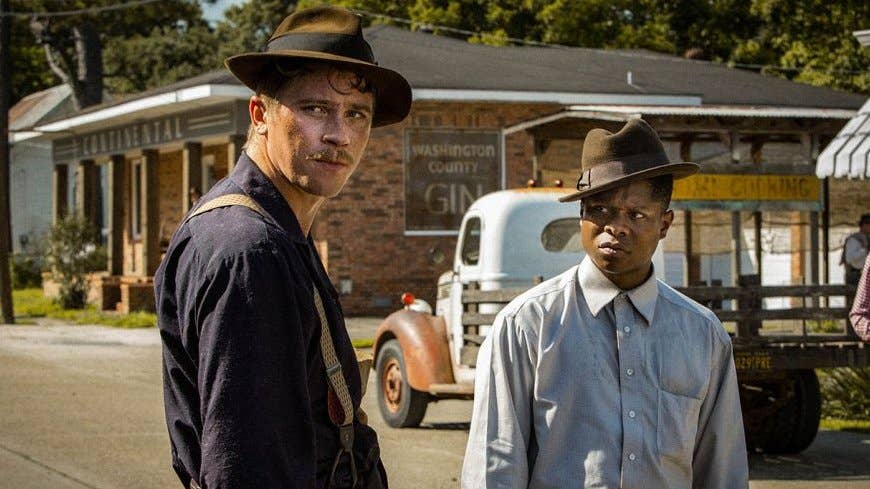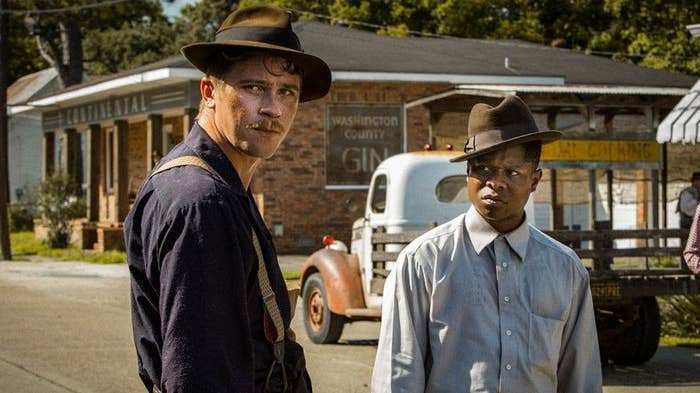
You might say 2017 is Dee Rees’ year. The Nashville-born filmmaker has been making films for the better part of a decade, but with Netflix’s release of Mudbound, she’s about to go global. Having built a career on intimate, character-driven and deeply compelling stories with earlier works like 2011's Pariah and 2015's Bessie,Rees creates what is easily her most epic production: a drama centered on two parallel families—one black, one white—in rural Mississippi at the end of WWII. It’s a dazzling and emotionally grueling watch that’s already leading the Oscar discussion for the year thanks to its incredible cast (including an unrecognizable Mary J. Blige) and immense, evocative scope.
That scope, with its painterly landscape shots and ambitious war sequences, is the very thing that might scare some filmmakers away from Netflix’s small-screen medium (lookin’ at you, Christopher Nolan). But not Rees. “There’s no ‘but’ about it,” she insisted after an early screening of Mudbound at the Middleburg Film Festival. “To have a simultaneous global audience, as an artist, is more than you could ever hope for. More people are going to see it in one day than they would ever see in a theatrical release.” It’s true: and it’s the kind of exposure that’s about to send Rees’ profile into the stratosphere.
But while she’s been at it for a while, Dee Rees hasn’t always been in the industry. “[Filmmaking] is my second life, in a way,” she revealed, saying that she spent the first chunk of her adult life marketing for Procter & Gamble and other companies, selling everything from orthopedic inserts and toothpaste to pantyliners: “Basically, creating women’s insecurity,” Rees laughed. It wasn’t until she was laid off from her job at Colgate in the early aughts that she made the decision to pursue her dream and move to Brooklyn, where she ultimately attended NYU’s grad film program, and got the education that allowed her to tell the stories she’d been dying to explore since she was a teen. “Filmmaking was the way I could write characters and not have to give them up to anybody,” Rees told Complex.
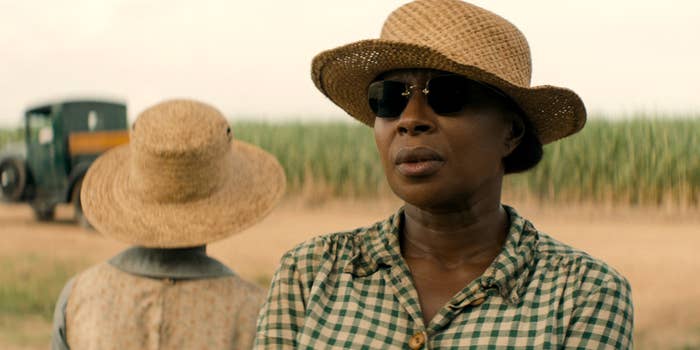
After graduating, she’d make Pariah, an intimate coming of age film centered on a queer Brooklyn teen for less than $500,000 that helped put her on the map. “I had originally written Pariah as a feature, and we shot the first act as a short film, and then we used the short as a marketing tool to fundraise for the feature.” As anyone familiar with the cash-strapped world of indie film knows: it wasn’t easy. “We put that thing together with credit cards, grants… We never had all the money to make it at the same time. We got a grant, we got like $50,000 and we were like, ‘Okay, let’s just go. We’re never gonna get it all at once.’ We made that film on layaway, basically.”
Pariah would go on to open the 2011 Sundance film festival and even score a nomination for the fest’s highest honor, the Grand Jury Prize. But when it was officially released, the film was often unfairly heralded as the year’s equivalent of Lee Daniel’s soapy Precious, a plainly short-sighted comparison that obscured Rees’ obvious ability to craft raw and realistic scenes and settings that gave Pariah the unmistakable air of real life.
In the years since, Rees stayed busy: she was called in for an HBO pilot starring Viola Davis that unfortunately never saw the light of day, and brought her astute eye to the Queen Latifah-starring Bessie. But it’s Mudbound that’s about to land the director the notoriety she deserves. Still, the stunning epic wasn’t necessarily met with open arms when Rees first brought it to Sundance last year. “I thought the film was gonna sell in 45 minutes. It wasn’t that. I think people [were] comparing it to the year before, where the [most notable] film didn’t perform,” she said, referring to Nate Parker’s Birth of a Nation, a film that drew standing ovations on its opening night at the festival and triggered a record-breaking bidding war, only to be undone by bad box office, lukewarm reviews and a sexual assault scandal involving its writer/director Parker.
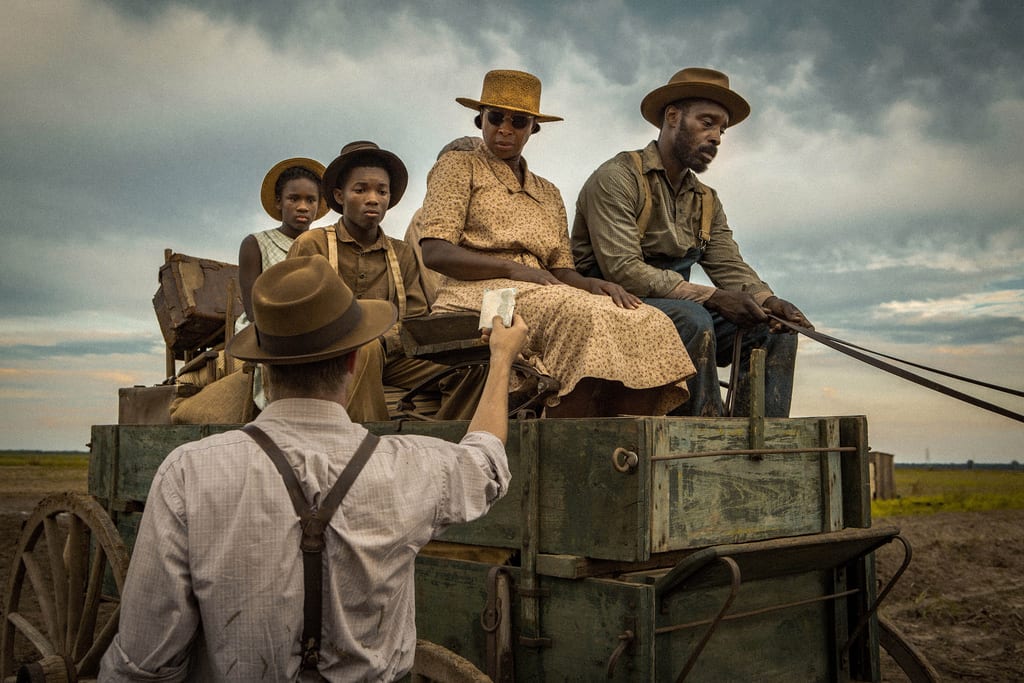
Nevermind the fact that Mudbound and Birth of a Nation have little in common beyond their period setting and largely black cast. “That's what happens when things get reduced down to their base level,” Reese confided. “‘Oh, this is a black film, this is a race film,’ and it's so much bigger than that. And frankly, they're two completely different works, completely different directors, and they shouldn't even be in the same sentence. But I think film executives were afraid of it, so none of the studios bid on it. And Netflix was like, ‘Wait, nobody's buying this? We're buying this!’ And they bought it for what it was worth [$12.5M], which I appreciated, 'cause there was no war, they could have had it for less.”
Watching Mudbound, there’s no doubt it was worth every cent: epic and sumptuous, it looks like an important film just as much as it feels like one. But for all its beauty, there’s no denying that the film’s denouement is some of the most brutal minutes of film you’ll see this year. “I just wanted this film to get the everyday-ness of violence in the country,” Rees explained when asked about the film's most shocking scene: a lynching. “Our country is pathologically violent. Like Baldwin says, we have to look at the body, we can't not look.”
It's striking that 2017’s other high-profile film about race relations in America’s history is Detroit, Kathryn Bigelow’s arguably exploitative depiction of black suffering that drew harsh criticism for its white creative team and over-the-top depiction of violence. But for all the potential shock value Mudbound possesses, Rees makes it clear it was crucial for her to put the audience inside of her characters’ suffering. “For. people to say: ‘It's hard to watch’ – these are the same people who watch A Clockwork Orange and Reservoir Dogs. And if you can watch that, you can watch this. As a country, we have to keep looking. Because we keep looking away, and that's how we end up where we are now.”
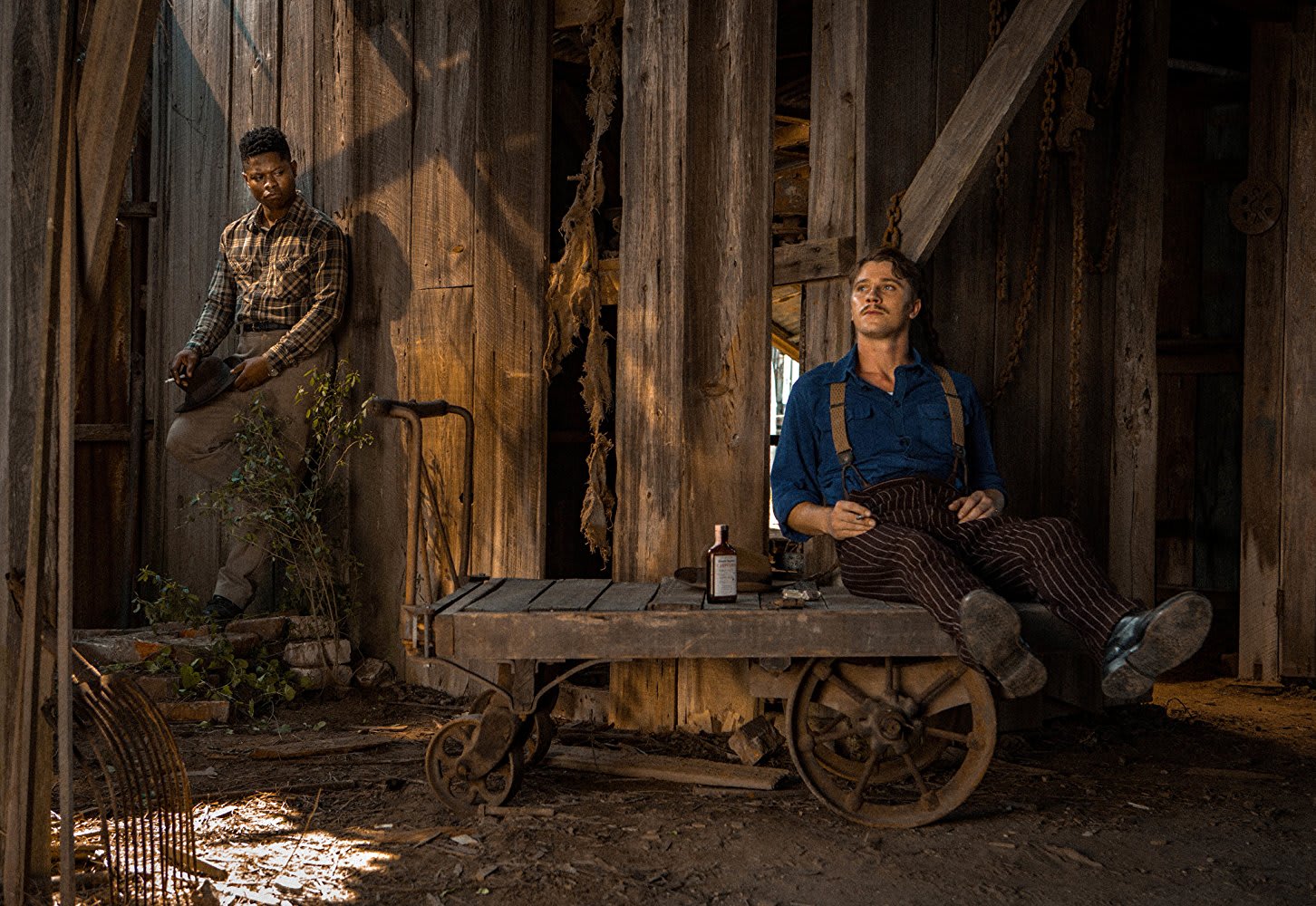
Though clearly a versatile filmmaker, Rees, like many minority creatives in Hollywood, is often asked to quantify how her identity as a black female director changes her perspective on the material, a question Rees seems uncomfortable with. “I feel like if you ascribe to [the concept of a female gaze], there's a slippery slope, right? 'Cause we say that, and we accept that, then you have to say, ‘Okay, then men are better at making this kind of movie.’ Some directors have certain affinities, certain strengths that predispose them to being better at certain types of material… I don't wanna say that me being a woman gave me a particular insight; I think me being Dee gave me a different insight, and so you have to view people in particular, not assigned to gender or identity or nationality, 'cause then you start pigeonholing people inadvertently. It's a thing that is well-meaning but is actually box-constructed.”
Even so, it’s no secret Rees has spent her career contending with the largely white, masculine film industry to have her voice heard. “We've been denied so many riches by these arbitrary limits that the gatekeepers who have been traditionally white and male have put on themselves.” It’s an industry that seemed to hit its cultural breaking point with #OscarsSoWhite two years ago, a conversation that led to crucial restructuring of the Academy and very likely opened the doors for Moonlight’s much-deserved Best Picture win. But Rees doesn’t just want to change the system, she wants to change the conversation. “When a woman does something, assume it's on purpose, don't assume she lucked into it. If a guy does something, ‘He's genius, he's brilliant, he meant every single thing in the frame.’ A woman does it, ‘Oh, let's see what she does next time. This is lucky. Let's see if she does it again.’”
There's no mistaking Rees’ oeuvre for a fluke. She’s done it three times, and has plans to do it again and again. Next up, she’s got a handful of films each more different from the last: a Joan Didion adaptation, a Gloria Steinem biopic, and an upcoming horror project, which she laments she can tell me almost nothing about beyond the fact that it will be centered on the domestic lives of black lesbians in rural America.
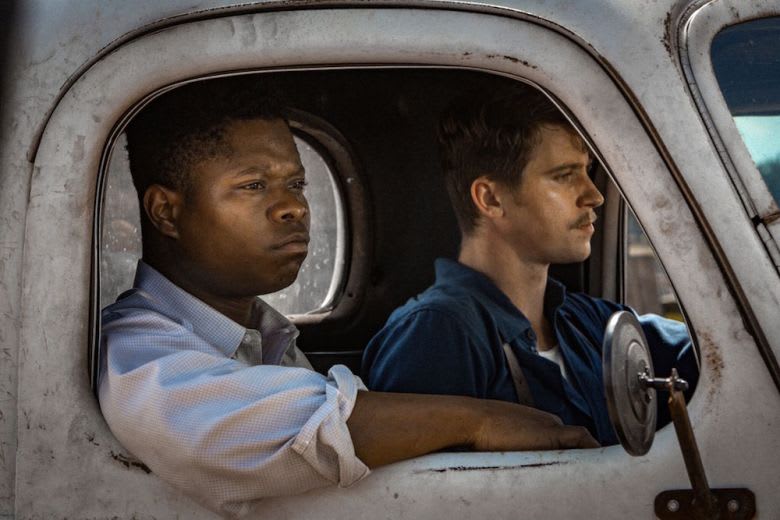
When asked what each of her projects have in common, Rees reveals her decisions are never about plot. “I have to be wanting to work with a character for a reason. It's interesting, complicated characters; people who contradict themselves. That's the thing I keep coming back to… For Mary J. Blige’s Mudbound character I wanted someone who had a very reserved exterior and a very vulnerable inner life, and Mary brought that. If you’ve ever been to one of her shows, it’s like a therapy session for 30,000 people. She’s empathetic, she’s feeling. I knew she could bring that feeling. It’s very hard to act with that strength, and I think Mary’s a master at it.”
As Dee Rees braces for the impact of her film’s long-awaited release, she muses on what it might take to ensure Hollywood’s future gets and stays diverse. “I think we change [the industry] by making excellence the standard,” she says. “Let excellence be the standard. If an excellent film by an unknown director gets made, we should celebrate. If a mediocre film by a famous director gets made, it should be ignored.” By Rees’ own rules, the release of Mudbound certainlycallsforcelebration.
Mudbound is now streaming on Netflix and playing in select theaters.

